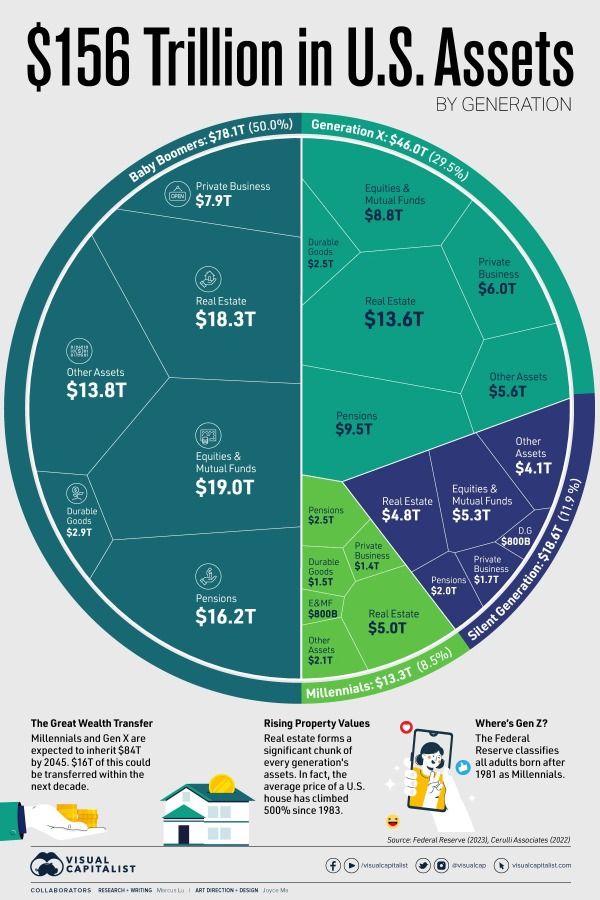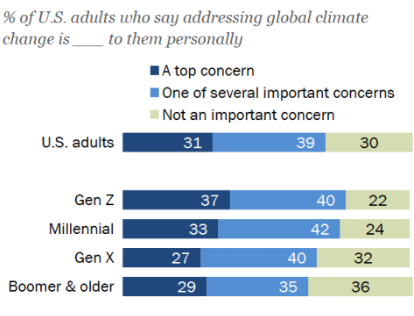What happened to Greta Thunberg?

Revisiting Gen-Z's attitude towards climate change
Now, first of all, I am not an activist. I think activism is too blunt of an instrument to resolve highly complex multifaceted societal issues (or the quality of the food in Parisian university cafeterias). However, there have been occasions where activism was the only way to break through social inertia and force matters forward. And as far as causes go, I believe that climate change is the most pressing, transformative and impactful challenge we face as a species today. So I was curious why Greta Thunberg seems to have disappeared from the limelight after her 2019 Time Person of the Year award, and how that has impacted Gen Z's attitude on climate change.

The big COVID climate strike hiatus
As most of you will be aware, not long after that December 2019 Time Person of the Year award COVID19 closed our cities and schools. Along with most other Gen Z identity-building activities, COVID19 forced Greta's school strikes online. According to this in-depth piece in Politico, at least the digital Fridays for Future gatherings allowed Greta to connect with activists from the global south. Activists that unlike most people in the West were facing the reality of climate change–not its future hypothetical. Nevertheless COVID19 looks to have been a major setback for a global climate movement that was starting to pick up more and more speed across the world in 2019. With the imposed lockdowns, the main weapon of the climate movement fell away. Given that in 2019 Gen Z was either in school or in college, they had very little in terms of financial or political levers to enforce the kind of change they were calling for. And with the attention of the public and most governments squarely fixed on a virus, the climate movement pretty much lay on its ass for much of 2020 and 2021.

Luckily, the reduction in economic activities as a result of the lockdowns also helped fight climate change, right? Unfortunately not. There was a slight drop in greenhouse gas emissions during the first half of 2020, but 6 months of lower emissions was not nearly enough to break down the enormous quantities of GHGs that have accumulated in the atmosphere (I'm not an expert here, please consult your local climate scientists or Greta's book for more information).
Down on earth, among the COVID19 fallout Gen Z would find itself faced with significantly fewer economic opportunities. The world economy was heading nowhere fast, and any head start they might have gained from tertiary education turned into a burden of debt. Whatever concerns they had about climate change needed to be put on a back burner to deal with the economic reality of ridiculously high rates of youth unemployment and altered career prospects.
"Representative" democracies
So who was looking out for the climate in the mean time? A point Greta has made repeatedly in her speeches is that the older generations are failing hers when it comes to combating climate change. What about the Greens, they must be doing something? Again, unfortunately not so much. They are neither getting their point across effectively enough through decades of woolly cloth or producing any of the concrete solutions needed to tackle climate change now. I personally expected (or hoped) a green wave to reshape politics in Europe back in 2006 (yes, I'm that old). Crickets. Instead, it's 2023 and politicians are still bickering about directions on a red-blue colour spectrum that is hopelessly outdated. As if all societal problems come down to the choice for the right political system. That would indeed be convenient for, say, politicians.
Okay, to sum up what we've established so far–in 2021 Gen Z had no money, no jobs, no political clout to speak off, and climate activist rallies have tapered off significantly since COVID19. Activism that was also only ever allowed to continue for as much as it didn't inconvenience business as usual too much. While Gen Z has no money now, at least in the EU and the US–and this is a source of great concern for a particular brand of liberal economists–they do have wealthy parents and/or grandparents. This means that Gen Z will stand to inherit a huge chunk of generational wealth over the next two decades. Problem solved! Climate finance is going to fix the world! A slight problem here (unless Gen Zs take matters into their own hands—please don't) is that people live a lot longer these days, and they will need to be very patient. That is a hard ask for a generation purportedly suffering from Tiktok brain. Or for any 16-to-24-year-old in the history of the world, for that matter. There is also the small matter that twenty years of business as usual will damage the climate beyond repair.

Does that mean Gen Z is condemned to shuttle from underpaid gig to underpaid gig for the next twenty years, lacking basic income security while making the rich get richer in a serf-like service economy? Are we looking at a bummer generation, a horde of Jeffrey Lebowskis whose only hope is to make it big on their respective social media bowling alleys (outdated pop culture reference alert: The Big Lebowski (1998))? Should they/we be putting their/our hope in technocracy–in some form of technological breakthrough that will magically solve climate change while at the same time creating infinite opportunities for personal and professional growth (Google Solar Panel Engineer for a brighter future)? And how will this help the kids of today face rising surface temperatures and sea levels and the extreme weather events we have brought upon ourselves?
Fast-forward to the Anthropocene
Of course I don't have the answer to all of these questions. It's a free blogpost after all. I do think that now that we're in the Anthropocene, the narrative of economic growth is due to revision. Gen Z can help redefine that narrative. As the great Dutch philosopher Johan Cruyff used to say, "I've never seen a bag of money score a goal." Maybe the availability of money is the wrong metric on which to measure the health of a national economy (cue inflation, debt etc). Alternative metrics proposed in the circular economy corner are useful from an operational resource management perspective, but ultimately devoid of meaning. Their focus on a limiting set of goals–planetary boundaries–completely ignores the social dimension of human beings. Goals and a sense of purpose are central to how we see ourselves and how we relate to others–they define our identity. The eternal "What do you do for a living?" is a question about someone's social status, goals and purpose in life. In other words, about how we are contributing to the tribe.
So how about instead of "what do you do for a living", we start asking "what problem are you solving"? This creates inherent accountability (yay! peer pressure) and forces us to think through how our activities contribute to society. There are plenty of Big Problems out there that require both immediate and long-term solutions. As a species, we're still learning to use science and technology to deal with something as complex and powerful as the climate. In fact, climate is such an awe-inspiring phenomenon that quite a few major religions had it as their central deity. The word deity itself is directly derived from the Indo-European word for sky-god, *Dyēus (think Zeus or Deus). In ancient China, heaven (天, Tiān) was the realm of the supreme being. So the fact that we now find ourselves in a place where need to think about how we can change the climate is a big mental step, and one that understandably many people are not yet willing to take. Nevertheless, this is the reality of the Anthropocene. Our environment is no longer dominated by nature, but by our technologies.
And in the middle of this massive cultural, meta-generational civilisational change Gen Z is going through puberty and getting drunk in college. If they can wake up and shake off their warm fluffy blanket of victimhood, they are the generation best placed to deal with climate change. After all, it's their future on the line. So if there is an election coming up in your knack of the woods, please consider voting for younger representatives–especially ones that have proven themselves capable of doing more than just politics. Ones that are looking for solutions rather than pointing out problems (which automatically excludes McKinsey alumns).
A carbon Joan of Arc
Greta, in the mean time, is still out there giving speeches at your local COP and getting arrested at climate rallies (four arrests and counting in 2023 alone). She has also written her first book. None of the Really Big Problems she wants us to fix are close to being solved.





